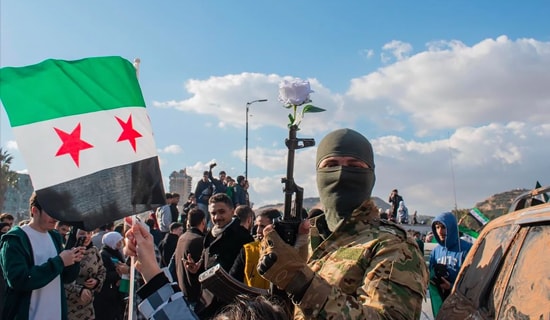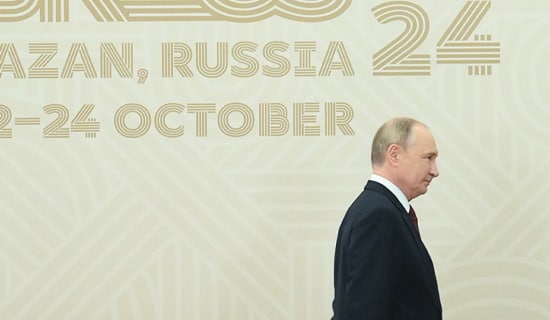Fifteen years ago, hundreds of thousands of American citizens took to the streets in rallies across the United States for the sake of a faraway cause. At precisely the same time that the United States was directly and deeply embroiled in conflicts in Iraq and Afghanistan, thousands of idealistic young people rallied to "Save Darfur." In retrospect, this looks like other passing Western enthusiasms for causes such as Free Tibet or "Kony 2012," a type of Western therapy generating intense, fleeting emotions about distant causes lending themselves to a simplified moralistic narrative. The biggest Darfur rally in 2006 was on the National Mall in Washington, D.C., and featured hip-hop entrepreneur Russell Simmons, Al Sharpton, George Clooney, Elie Weisel, and a young U.S. Senator named Barack Obama. The overwhelmingly white middle class audience was called upon to "speak out," "raise awareness," to avoid silence and indifference to genocide in Darfur, comparisons were made to the Holocaust and to the massive killings a decade earlier in Rwanda which were mostly ignored by the Clinton Administration.

Eastern Sudan tribal leader Muhammad Al-Amin Turk at a recent press conference.
Did any of this attention make a difference on the ground in Sudan? Probably not much. The bulk of the genocidal actions of the Bashir regime in Darfur from 2003 to 2005 had already taken place by the time of the rallies, although the killing never actually stopped completely. An ineffective African Union peacekeeping force (AMIS) was on the ground by 2004 and would be replaced by a larger, much more expensive UN peacekeeping force (UNAMID), only slightly more effective, in 2007. UNAMID would finally end in 2020. If the Darfur War had any real effect in Sudan, it was to lead to the end of the much bloodier, more intractable decades-long war with the South Sudanese. The conflict that broke out in Darfur in early 2003 would contribute to the Bashir regime signing a peace treaty with the Sudan Peoples' Liberation Movement (SPLM) of Dr. John Garang in 2005 and this agreement would lead to the independence of South Sudan in 2011. Another result of the Darfur conflict would be the institutionalization of local Darfur Arab militias into the Sudanese military as a separate rapid reaction or shock force with unintentional consequences years later.
Western attention is fleeting and variable, and seems to be becoming even more fleeting in recent years. Western attention on Sudan is waning and will continue to do so. The West is deeply distracted by its own internal conflicts, its culture wars and controversies, and when the Western gaze looks abroad it sees a multiplicity of flaring interminable conflicts. The great human rights cause of the last decade, Syria, is all but forgotten as Assad, Iran, and Russia won that war in which they (and their adversaries) encouraged the rise of a thoroughly Islamized armed opposition. What once seemed like a black and white conflict between good and evil became a gray zone, and gray zones are discarded and forgotten.
With the fall of the Islamist Bashir regime in Sudan in 2019, a convenient villain passed the stage, Sudan entered its period of renewed international attention, one that is now passing and will likely end long before elections scheduled for 2024. Sudan's myriad problems pale compared to those of its neighbors. In Ethiopia, a new genocide rages at the hands of the Abiy Ahmed regime and his Eritrean allies. South Sudan is a near failed state and nearby Chad is volatile. Until recently both Libya and Yemen were at war.
A lot has been accomplished in Sudan since Bashir's fall. Sudan is finally off the U.S. terrorism list and that has led to a flurry of positive consequences in terms of integrating the country back on the world stage and in the global economy. It has a hardworking civilian government that is sensitive to the country's daunting problems and works from a realistic reform agenda. Sudan is less repressive and more at peace than it has been in fifty years.
But things are not going so well. News agencies recently reported as good news the fact that inflation had slowed to 387.6% in August, the first decline in inflation since 2019, as the country implemented tough economic measures in line with IMF guidelines.[1] The decline is good news for any country not named South Sudan, Venezuela, or Lebanon but shows the challenge that Sudanese policymakers face in managing dire economic and political challenges that don't quite rise to the level of the catastrophic.
If Sudan is managing painful economic conditions as well as can be expected, other challenges seem to constantly appear. While the interim government has signed several peace deals with rebel groups, incorporating them into the government (Sudan's finance minister is a former Darfur rebel), regional and political instability remain just under the surface, and not just under it. On September 17, a dangerous civil revolt in Eastern Sudan threatens to unravel the country's fragile progress as thousands of members of the region's Beja people blocked transport from the country's main port on the Red Sea to Khartoum and called for dissolving the civilian government and having the military rule in a new transitional council.[2] The rebels, led by Hadendowa tribal leader Muhammad Al-Amin Turk, also blocked access to the country's oil export terminal.[3]
While the action has an ethnic and economic component, it also has a political one as several of the leaders of the blockade are connected to the dissolved Islamist party of the Bashir regime, the National Congress Party (NCP).[4] So far, the Sudanese government has resisted calls to use force to put down the uprising which has attracted not just Islamists and tribal elements but even supposed reformers unhappy with the slow pace of reform in Sudan. The rebels are expressing respect for Sudan's generals while focusing their ire on Sudan's civilian administrators.[5]
Compared to ongoing genocide in Tigray and terrorist drone strikes from Yemen, this looks like small potatoes. Eastern Sudan is, however, a strategic zone facing Saudi Arabia across the Red Sea and bordering Eritrea, the North Korea of Africa, in the South. The Sudanese region also hosts thousands of Eritrean refugees and opponents of the regime in Asmara. During the Bashir regime, Iran used the same region to smuggle rockets across the border into Egypt on their way to Hamas in Gaza.
The conflict threatens to militarize the situation in Sudan, which is the ultimate danger. The question becomes whether military intervention will be nationalist, Islamist, or reformist. As if on cue, Sudanese media informed audiences on September 21 of a "small, failed coup attempt" by a SAF Major General Abdel Baqi Al-Bakrawi, in connection with exiled elements of the former Islamist regime. It was not the sixth known foiled plot during Sudan's transition period and it will not be the last. Al-Bakrawi is a tank officer and Sudan's armored units seem to be a hotbed of support for the previous regime. He had recently returned from medical care in Egypt where he may have been in contact with former regime elements.[6]
As the civilian government of Abdullah Hamdok undertakes the grim, difficult work of reform, of cleaning up 30 years of Bashir regime disasters and atrocities, it also runs the danger of wearing itself out, absorbing popular discontent and so discrediting the causes of reform, secularism and democracy that will make an eventual return to outright military rule in Sudan even more likely. And by the time this happens, Western attention will be elsewhere. Even if the civilian government is able to calm the situation in Eastern Sudan and appease demonstrators, it is likely that this pattern of regional/tribal agitation + economic discontent + political agitation behind the scenes will continue somewhere else and each time that it is repeated the dangerous temptation of cracking down too hard or allowing things to get out of hand will appear.
Sudan is trapped by its own history and reality. Away from the glare of spectacular awfulness of situations elsewhere, there is nothing for the government to do but doggedly persevere, avoiding excess and overreaction, continue the path of reform. But the fact that Sudan is doing many of the right things the so-called international community calls for, and that it has not exploded, does not make it a success story no matter how much worse things may seem to be elsewhere.
[1] Reuters.com/world/africa/sudan-inflation-slows-38756-august-2021-09-14, September 14, 2021.
[2] 3ayin.com/eastern-sudan-3, September 19, 2021.
[3] Sudantribune.com/spip.php?article70088, September 20, 2021.
[4] Youtube.com/watch?v=7mFbZN6VnCM, September 14, 2021.
[5] Youtube.com/watch?v=3_dBiQY6OJk, September 19, 2021.
[6] Mc-doualiya.com/%D8%A7%D9%84%D8%B4%D8%B1%D9%82-%D8%A7%D9%84%D8%A3%D9%88%D8%B3%D8%B7/20210921-%D9%85%D9%86-%D9%87%D9%88-%D8%A7%D9%84%D9%84%D9%88%D8%A7%D8%A1-%D8%B9%D8%A8%D8%AF-%D8%A7%D9%84%D8%A8%D8%A7%D9%82%D9%8A-%D8%A8%D9%83%D8%B1%D8%A7%D9%88%D9%8A-%D8%A7%D9%84%D9%85%D8%AA%D9%87%D9%85-%D8%A8%D8%A7%D9%84%D9%88%D9%82%D9%88%D9%81-%D8%AE%D9%84%D9%81-%D8%A7%D9%84%D9%85%D8%AD%D8%A7%D9%88%D9%84%D8%A9-%D8%A7%D9%84%D8%A7%D9%86%D9%82%D9%84%D8%A7%D8%A8%D9%8A%D8%A9-%D9%81%D9%8A-%D8%A7%D9%84%D8%B3%D9%88%D8%AF%D8%A7%D9%86, September 21, 2021.





